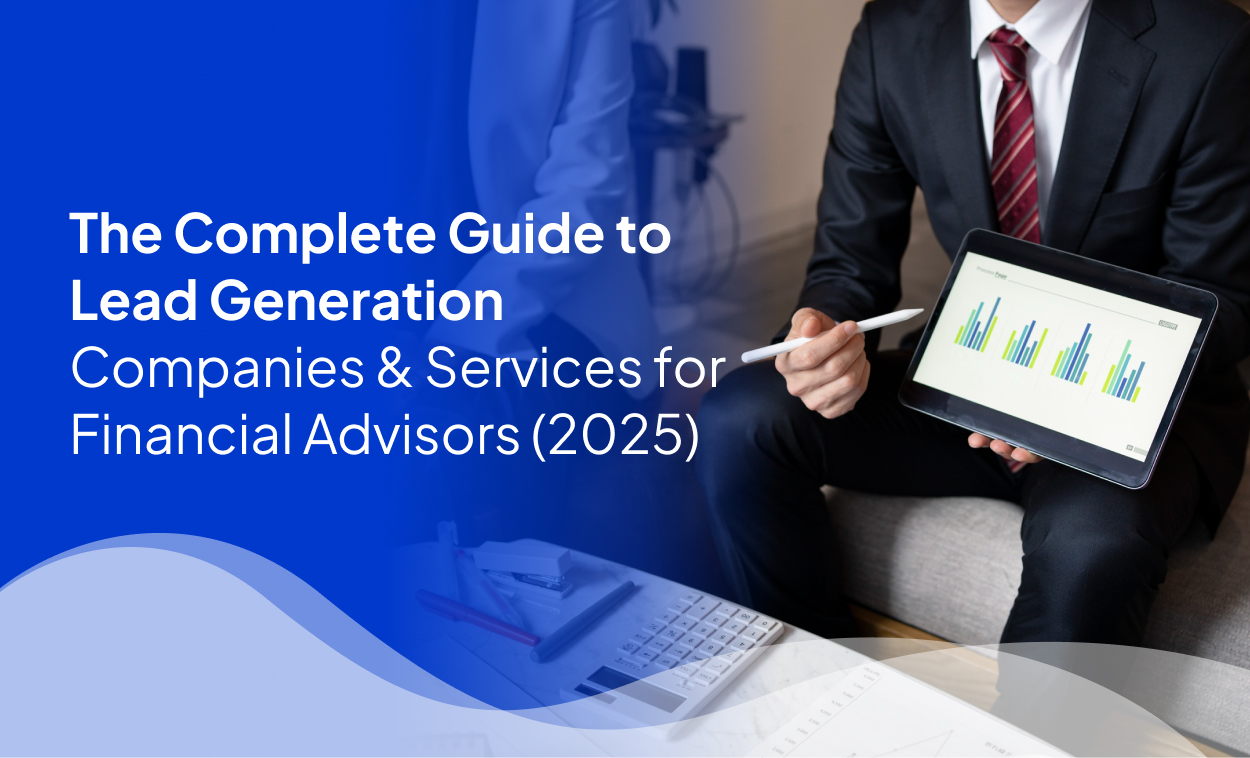
- Written & Reviewed by Jeremy
- Published
- Last Updated Nov 18, 2025
Being busy does not always mean you are productive. You can run as fast as you want, but if you are stuck on a hamster wheel, you are not really moving forward.
Many financial advisors get caught up in constant activity, answering emails, attending meetings, reviewing portfolios, without stopping to think if those tasks are truly growing their practice or building stronger client relationships.
Successful financial advisors combine technical proficiency with empathy, transparency, and ethical decision-making, ensuring clients feel confident in the guidance they receive. By integrating these elements into daily practice, advisors can not only grow their business but also create lasting, meaningful client relationships.
Here are the top strategies that financial advisors can adopt to grow their practice, build trust with clients, and position themselves as leaders in the competitive financial services industry.
Best Practices For Financial Advisors
1. Prioritize Transparency and Open Communication
Transparency is the foundation of trust. Clients need clear and honest information about the services offered, investment strategies, associated fees, and potential risks.
Effective financial advisors proactively explain their approach and the rationale behind their recommendations. They maintain open channels of communication, promptly addressing client questions and concerns. Transparent communication not only builds confidence but also empowers clients to make informed financial decisions aligned with their goals.
2. Uphold the Fiduciary Standard
Integrity and honesty are critical to establishing credibility. Advisors must consistently act with fairness, moral principles, and ethical conduct.
This involves providing accurate information, avoiding exaggeration, and maintaining truthful communication. By consistently demonstrating integrity, financial advisors cultivate long-term trust and confidence, ensuring clients feel secure and respected throughout their financial journey.
4. Commit to Continuous Education and Expertise
The financial industry is constantly evolving, with changes in market conditions, regulations, and investment products.
Advisors must engage in continuous learning and professional development to provide clients with the most current and effective guidance. Pursuing certifications, attending industry workshops, and staying updated on regulatory changes allows advisors to offer informed recommendations.
Clients value advisors who demonstrate expertise and remain current with evolving financial landscapes.
5. Understand Client Needs Through Empathy
Empathy is essential for building meaningful advisor-client relationships. Understanding a client’s personal and financial circumstances, goals, and concerns allows advisors to provide personalized solutions.
Listening attentively and asking thoughtful questions enables advisors to design strategies that reflect the client’s priorities and values. Clients who feel understood are more likely to trust their advisor and remain engaged in the planning process.
6. Offer Personalized Financial Strategies
No two clients are alike, and financial advisors must create tailored plans that consider each client’s unique objectives, risk tolerance, and financial situation.
Personalized strategies integrate investment planning, retirement planning, tax planning, estate planning, and risk management. By delivering customized solutions, advisors demonstrate commitment to the client’s success and help achieve both short-term and long-term financial goals. And these strategies includes top advisors marketing platfomrs.
7. Protect Client Confidentiality
Maintaining confidentiality is vital to establishing trust. Advisors have access to sensitive financial and personal information, and safeguarding this data is a professional obligation.
Implementing robust security measures and adhering to privacy regulations ensures that client information is protected against unauthorized access.
Clients feel secure sharing personal details when they trust their advisor to respect their privacy and confidentiality.
8. Demonstrate Accountability
Accountability involves taking responsibility for decisions, actions, and outcomes. Financial advisors must be willing to acknowledge mistakes, provide explanations, and implement corrective measures when necessary.
Being accountable reinforces transparency and professionalism, showing clients that their advisor is committed to ethical conduct and the highest standards of service. Accountability fosters trust and strengthens the advisor-client relationship over time.
9. Leverage Technology Responsibly
Technology can enhance the efficiency and accuracy of financial advisory services. Portfolio management tools, financial planning software, and analytics platforms provide valuable insights that support informed decision-making.
However, technology should complement, not replace, the personal relationship between advisor and client.
Effective use of technology enables advisors to deliver timely updates, detailed reports, and precise recommendations while maintaining a human connection that clients value. And using technology comes with first to use yourself online marketing
10. Monitor and Adjust Plans Proactively
Financial advising is an ongoing process rather than a one-time transaction.
Advisors must regularly review and adjust financial plans to reflect changes in the client’s life circumstances, market conditions, or regulatory environment.
Periodic evaluations ensure that goals remain achievable and strategies continue to align with the client’s objectives. By proactively monitoring progress and implementing adjustments, advisors help clients stay on track and achieve financial success with confidence. Learn more about the best target markets for financial advisors.
Using Technology to Enhance Your Financial Advisory Practice
Key strategies include:
Streamline Workflows: Automate routine tasks like scheduling, document signing, and data entry to save time and reduce errors. Customer relationship management software helps track interactions and standardize processes.
- Enhance Client Acquisition: Use data analytics to identify high-potential prospects and patterns in client behavior. Lead platforms with prebuilt outreach systems can accelerate growth without a full marketing team.
- Improve Financial Planning and Portfolio Management: Advanced software allows the creation of detailed plans, market simulations, and real-time portfolio analysis. Risk assessment tools help quantify exposure and guide recommendations.
- Ensure Compliance and Data Security: Digital document storage, secure portals, audit trails, and encryption protect sensitive information and ensure regulatory standards are met.
- Boost Client Engagement: Virtual meeting platforms, mobile apps, and personalized messaging make communication more frequent, accessible, and meaningful.
- Support Professional Growth: Online courses, webinars, and simulation tools help advisors stay current, sharpen strategies, and deliver exceptional service.
Final Thoughts
Success in financial advising is not about being busy; it is about working smarter, building trust, and delivering real value to clients. Technology and strategic systems are essential, but even the most advanced tools cannot replace consistent, meaningful engagement. To accelerate growth and expand your practice efficiently, leveraging expert lead generation and marketing solutions is crucial. Revenx.com helps advisors generate qualified leads, automate outreach, and scale operations effectively. Book your consultation today to see how Revenx.com can transform your advisory business.
This guide is provided exclusively for informational and educational purposes and does not represent personalized financial, legal, business, or marketing advice. The strategies, examples, and information presented are general and may not apply to every financial advisory practice or individual circumstance. Outcomes from applying these best practices may vary and are not guaranteed. Financial advisors should thoughtfully assess these recommendations considering their unique objectives, regulatory obligations, and market environment. It is strongly advised to seek guidance from qualified professionals prior to making decisions related to client management, compliance, or marketing efforts.





